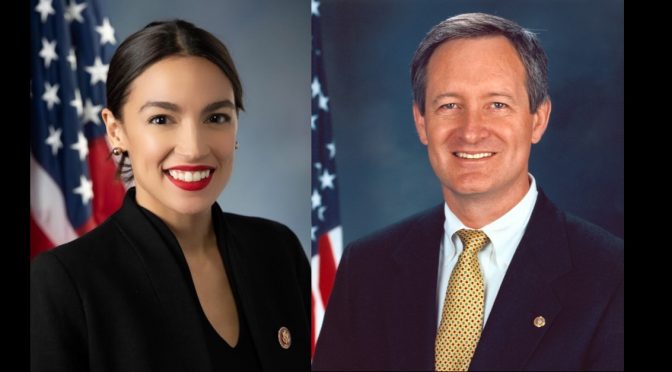Social justice failure of legalizing weed
Representative Alexandria Ocasio-Cortez exposed the fact that marijuana legalization fails as a social justice issue. https://youtu.be/kW7fWM04Uyc The Congresswoman spoke to the House Committee on Financial Services on February 13, 2019. She pointed out that 81% of dispensaries in Colorado are owned by whites, and that only 3% of dispensaries in Massachusetts are minority owned. Representative Ocasio-Cortez spoke at a House committee meeting discussing access to banking services for the marijuana industry.
Senate considers SAFE Banking Act
Senator Mike Crapo and the Senate Banking Committee are now considering the SAFE Banking Act. According to a secret recording of April 2018, Ukrainian businessman Lev Parnas urged President Trump to support the SAFE Banking Act. It is assumed that Parnas wanted to own or invest in American marijuana businesses.
Some people claim that allowing marijuana businesses access to national banks will reduce crime at pot shops. Like the social justice arguments, this claim is a false promise advocates use to promote a political agenda. James Graham in the Atlantic wrote about how and why it legalization increases crime: “People are getting shot over this plant. All legalization did here was create a safe haven for criminals,” (quoting a deputy sheriff of Humboldt County, California.) Another sheriff also commented on California’s 2016 ballot to legalize pot: “We haven’t seen any drop in crime whatsoever. In fact, we’ve seen a pretty steady increase.”
Access to banking will not reduce crime associated with commercialized marijuana, nor take away the dangers of using marijuana. Moms Strong urges its followers to sign the petition against marijuana banking.
Communities and businesses near or adjacent to marijuana dispensaries suffer needlessly with more crime. Even child abuse increases with proximity to medical marijuana shops.
Drug use devastates
When the House passed the SAFE Banking Act, legislators wanted to encourage minority ownership. That outcome isn’t at all likely.
Drug use devastates communities, whether legal or illegal. It causes lasting harms to individuals. The United States and Canada have 54% of the world’s drug users. Drug use leads to crime — not because drugs are illegal — but because drugs affect the brain and trigger scores of mental health issues. So far, Senator Crapo is only considering a bill that would allow banking for companies that limit the potency of cannabis to 2% THC. (The marijuana products sold in Colorado and Washington pot shops average more than 20% THC, and can get up to 80 or 90% THC.)
None of the states with legalized marijuana markets give proportionate minority ownership to their state-regulated pot stores and businesses. Representative Ocasio-Cortez suggested that the folks who profited off of the for-profit prison industry are the ones who have advantage in the marijuana industry. “Are we compounding the racial wealth gap right now based on who is getting first mover advantage?” she asked in the House hearings last February. Ocasio-Cortez explained the “big picture” — the folks who profited off of incarceration are the first to reap the benefits of access to banking. It would be delusional to think the SAFE Banking Act can change this outcome. In fact, corrupt people want to use the SAFE Banking Act to cover their corruption.
When Illinois passed legalization in May, 2019, supporters claimed to have “social equity” provisions built into its legislation. That promise proved to be hollow.
States claim social equity provisions, but lock out minorities
When Illinois opened stores on January 1, the state gave existing “medical” pot shops all the licenses. Social-equity applicants for marijuana businesses were locked out the initial phase of pot commercialization, because Illinois marijuana growers spent $630,000 on political donations leading to the pot legalization vote. More than $120,000 went to campaign and political funds tied to state Senator Don Harmon of Oak Park, a main sponsor of the 2018 bill expanding medical marijuana in the state.
An effort by Chicago’s minority alderman to delay opening for six months in Chicago failed. The Black Caucus hoped that by waiting six months, social equity applicants would gain equal footing with existing dispensary owners. Chicago city council rejected the Black Caucus bid to delay recreational marijuana sales by 6 months.
In Michigan, many minorities find themselves almost shut out of Michigan’s marijuana business. Anqunette Sarfoh, co-owner of a medical marijuana dispensary said: “We found that so many out-of-state investors had come in and had bought up all the properties in Detroit’s green zone and were just sitting on them.”
Big marijuana is king
California and Massachusetts have social equity provisions in their marijuana programs, but they aren’t working. The large amount of capital requirements needed to own a dispensary are a big hindrance to minority ownership. On the federal level, the MORE Act claims to address social justice issues in the marijuana industry. If states can’t figure it out, even when the states directly pay all capitalization costs for minorities to get into the weed business, how would the federal government be able to fix it?
Capital requirements allow huge national and international marijuana businesses to buy up the market. No amount of social equity laws and provisions will change the fact that BIG MARIJUANA will dominate the market. Access to banking would allow international cartels into the banking system and give access to foreigners, oligarchs and players such as Lev Parnas.
Please tell Senator Mike Crapo and the Senate Banking committee not to support the SAFE Act. We encourage our readers to sign a petition to Senator Crapo, chair of the Senate Banking Committee. Neither the social justice arguments to legalize marijuana, nor the crime reduction arguments hold up to scrutiny. Don’t allow any more access to banking, the SAFE Banking Act and the MORE Act.

